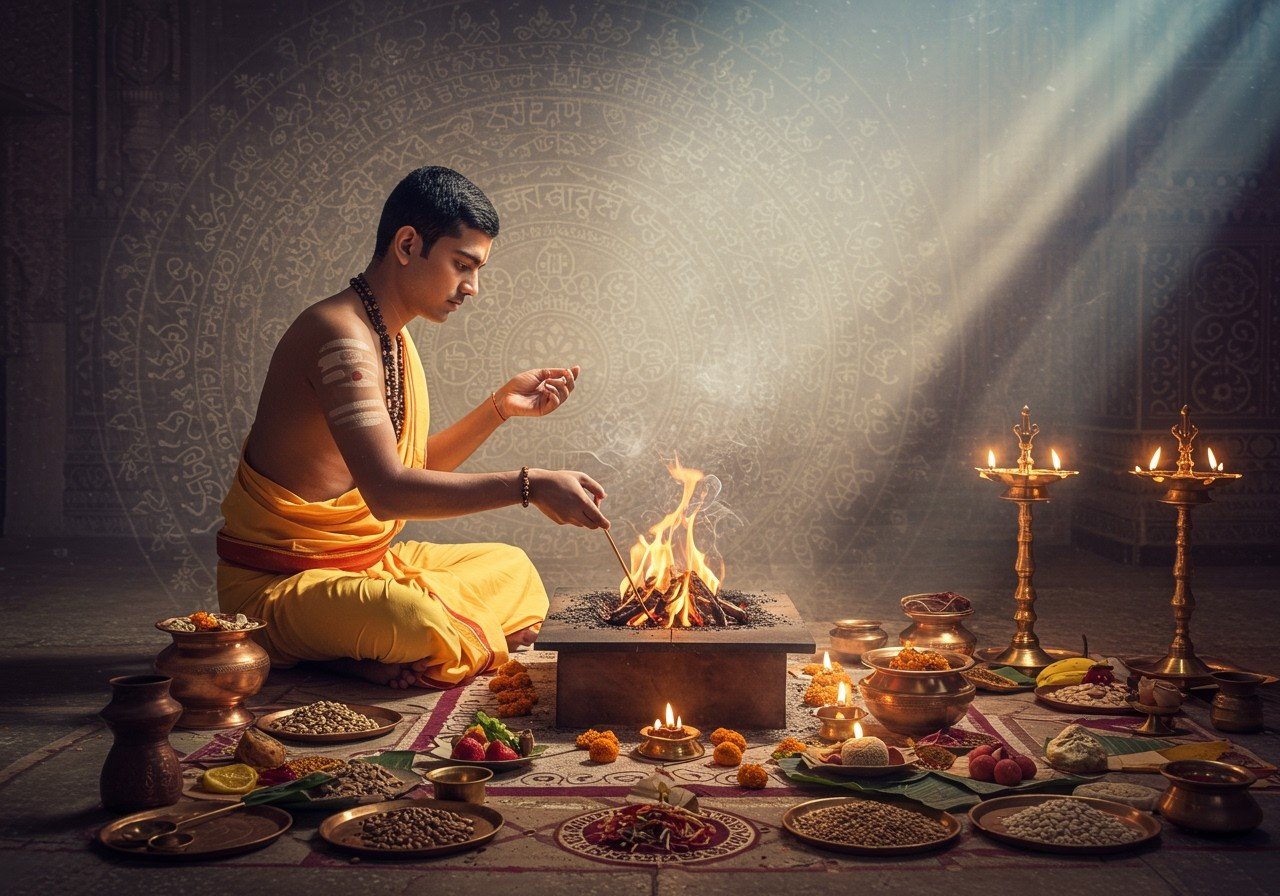
Mīmāṃsā, also known as Pūrva-Mīmāṃsā or Karma-Mīmāṃsā, is a profound school of Hindu philosophy centered around interpreting the Vedas, especially the portions dealing with ritual actions (karma). Derived from the Sanskrit word for “reflection” or “critical investigation,” Mīmāṃsā emphasizes the significance of rituals in understanding Dharma, which encompasses duty and righteousness. By performing these rituals, individuals connect with the divine and embark on a path of spiritual knowledge and liberation. For a deeper understanding of Vedic rituals, you can explore resources like Poojn’s Guide to Somnath Temple Rituals.
Mīmāṃsā Rituals Explained
Mīmāṃsā rituals are meticulously performed to maintain cosmic balance and achieve spiritual growth. Yajña, or sacrificial rituals, are central to this practice, believed to uphold the harmony of the universe. Sandhyavandanam, daily prayers, hold significant importance in the Mīmāṃsā tradition. Other essential rituals include Agnihotra (fire rituals) for purification, Upasana (worship) and Japa (mantra repetition) for spiritual progress, and Shravana (listening to Vedic recitations) and Svadhyaya (self-study) as foundational practices. You can find authentic puja items for these rituals at Poojn.in.
A core concept in Mīmāṃsā is Apūrva, an unseen force generated by performing rituals. This force is believed to bring about desired outcomes, emphasizing the inherent power of rituals, independent of divine intervention. This concept highlights the efficacy and importance of precise ritual execution.
Karma Mīmāṃsā: Philosophy and Practice
Karma Mīmāṃsā prioritizes the performance of duties (karma) over the results. The philosophy stresses the inherent value of actions themselves rather than focusing solely on outcomes. Rituals, in this context, become a means of fulfilling one’s Dharma. Adṛṣṭa, an unseen force generated by performing rituals, is believed to influence one’s future, further emphasizing the significance of ritualistic practice. Priests play a crucial role, ensuring the correct pronunciation of mantras and adherence to proper procedures during these sacred rituals.
Mīmāṃsā and Hinduism
Mīmāṃsā has profoundly impacted Hinduism, shaping the understanding of Dharma and Vedic rituals. It has contributed significantly to other philosophical schools, including Vedanta, which incorporates Mīmāṃsā principles. Even in contemporary times, Mīmāṃsā remains relevant, influencing daily rituals and festivals. Its principles continue to guide and inform modern Hindu thought and practice. You can learn more about Hindu rituals at Poojn.in.
Embracing Mīmāṃsā in Daily Life
Integrating Mīmāṃsā rituals into daily life bridges tradition with modern convenience. These practices offer a pathway to profound spiritual growth and a deeper connection with our rich heritage. By understanding and performing these rituals, we honor our ancestors and maintain our cultural identity. In today’s fast-paced world, Mīmāṃsā rituals offer moments of peace and reflection, fostering mindfulness and balance. The baran dala chalon available at Poojn.in can be a beautiful addition to your puja space.
With the accessibility of online shopping, sourcing authentic ritual items has become easier than ever. This ensures respect for tradition even within contemporary settings. As you incorporate these rituals, remember that each step is a journey towards fulfilling your Dharma. Embrace Mīmāṃsā with an open heart and witness how it enriches your life, bringing harmony and purpose. For Ganesh Puja guidance, you can refer to Poojn.in’s Ganesh Puja Guide.


